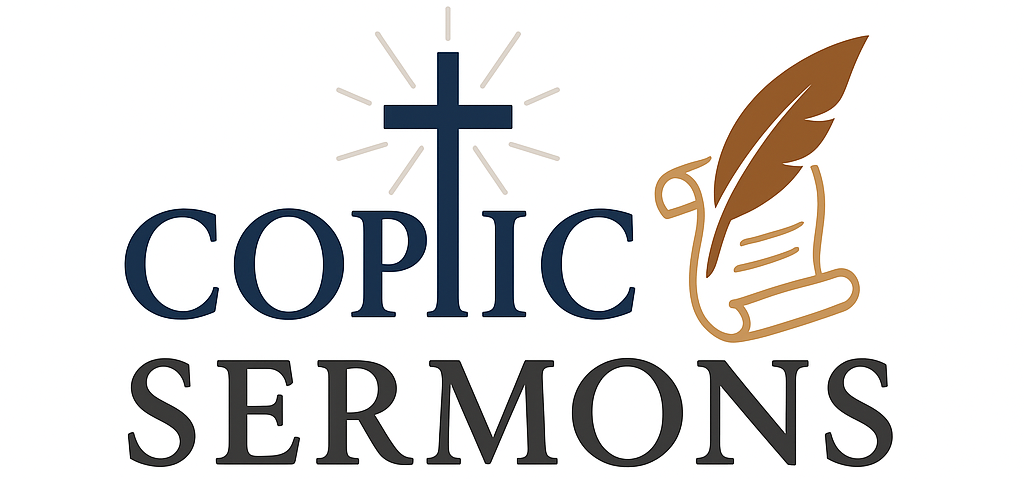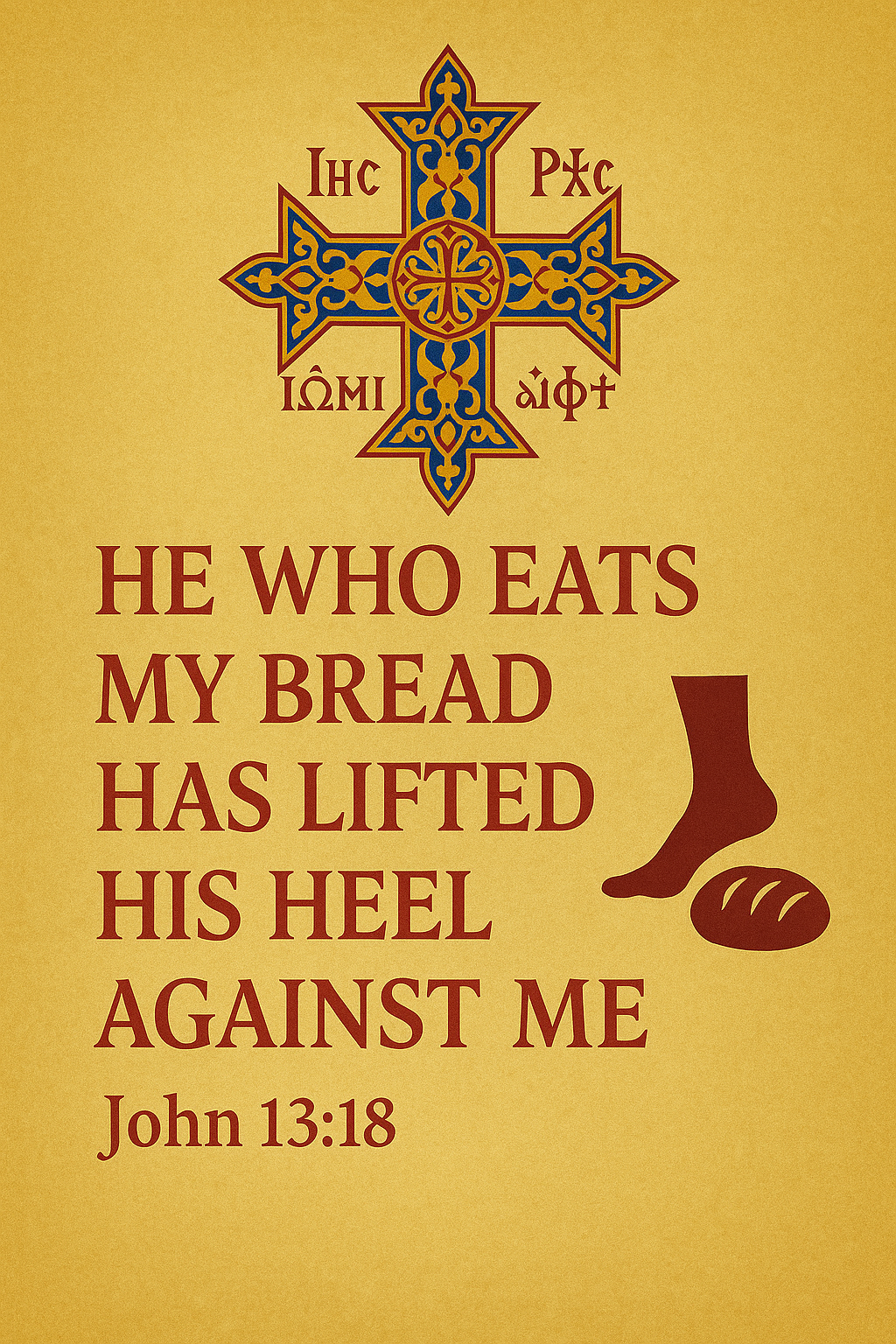He Who Eats My Bread – Betrayal, Freedom, and Salvation.
In the Name of the Father, and the Son, and the Holy Spirit, One God. Amen. May the blessing of the Father who calls us and His Only Begotten Son Jesus Christ who saves us, and the Holy Spirit who sanctifies and transforms us be with us all, that we may hear His word and bear fruit—thirty, sixty, and a hundredfold. Amen.
“I do not speak concerning all of you. I know whom I have chosen; but that the Scripture may be fulfilled, ‘He who eats bread with Me has lifted up his heel against Me.’” (John 13:18 – NKJV)
Introduction: A Verse that Pierces the Heart
Today’s Gospel carries both sorrow and divine truth. It reveals the heart of Christ at the Last Supper, pointing gently to Judas:
“He who eats bread with Me has lifted his heel against Me.”
These are not words of condemnation alone—they are a mirror, revealing the tragedy of misused freedom and the mystery of God’s foreknowledge. Christ speaks not in anger, but in grief. And in this one verse, St. Cyril of Alexandria saw a profound teaching: how betrayal, freedom, and salvation intersect.
1. Christ Knew—Yet Still Chose
St. Cyril addresses a painful question:
“If Jesus knew Judas would betray Him, why did He choose him?”
He answers with clarity: Christ, like God the Father who created Adam, like God who anointed Saul king, grants each person the dignity of choice. Judas was chosen not to betray, but to follow, to grow, to become a vessel of light. The betrayal came not from God’s design, but from Judas’ own fall into greed.
“God did not spare the angels who sinned, but cast them down to hell…” (2 Peter 2:4 – NKJV)
Even angels, even kings, even apostles—each is given the gift of freedom. But when that freedom is misused, the fall is severe.
2. Foreknowledge Does Not Cancel Free Will
Some may ask:
“If Scripture had to be fulfilled, was Judas merely a tool?”
St. Cyril warns against such a dangerous thought. The Bible is not a script forcing sin to happen. Rather, the prophecies are foretelling, not forcing.
“Is Christ therefore a minister of sin? Certainly not!” (Galatians 2:17 – NKJV)
The Holy Spirit spoke through David in Psalm 41:9, knowing what Judas would freely choose. The Scripture is fulfilled not because God pushed Judas into betrayal, but because the Spirit foresaw what would happen.
3. God Allows Evil for the Sake of a Greater Good
Why, then, does God permit betrayal, pain, and deception?
Because even the darkest hour can be turned to glory. Christ’s betrayal led to the Cross. The Cross led to the Resurrection. Judas’ fall became a warning, not a contradiction of God’s love.
“And we know that all things work together for good to those who love God…” (Romans 8:28 – NKJV)
God never delights in the fall of any soul. He calls, He teaches, He warns. But He will not force anyone to love Him.
4. What Shall We Learn? Practical Reflections
Let us now draw spiritual lessons from this holy teaching:
A. Examine Ourselves, Not Just Judas
Betrayal did not come from a stranger. It came from within the table fellowship—someone close, trusted, fed.
We must ask: Am I lifting my heel against the One who feeds me in the Eucharist? Am I hiding greed, pride, or bitterness behind pious appearances?
“But let a man examine himself, and so let him eat of the bread and drink of the cup.” (1 Corinthians 11:28 – NKJV)
B. Do Not Confuse Delay with Approval
Just because God does not punish us immediately does not mean He approves of our choices. Judas shared bread with Christ, but did not share His heart.
C. Freedom Is a Holy Gift—Use It Wisely
Judas could have repented. Christ even gave him a place of honor at the table. But he chose silver over salvation.
We too choose every day—between God and the world, between love and betrayal.
“I have set before you life and death, blessing and cursing; therefore choose life…” (Deuteronomy 30:19 – NKJV)
Hope for the Betrayer and the Betrayed
Saint Cyril reminds the faithful not to fall into despair or endless speculation. God’s foreknowledge is not a trap, but a testimony that He is not surprised by our weakness. He has already prepared the remedy.
For every Peter who denies, there is a path back through tears.
For every Judas who falls, there was a way—had he turned back.
“For godly sorrow produces repentance leading to salvation…” (2 Corinthians 7:10 – NKJV)
Final Encouragement: Focus on Eternal Life
Dear beloved, let us never forget:
- Salvation is not random.
- Christ has called you by name, just as He called Judas.
- What matters is what you do with your calling.
You are not bound by fear, fate, or prophecy. You are invited into the eternal banquet—but you must come with a heart of love, truth, and repentance.
Practical Application for This Week
- Daily Examination: Ask at the end of each day—Have I honored or betrayed Christ today?
- Reject Excuses: Do not justify sin as “meant to be.” Choose repentance, not resignation.
- Honor the Eucharist: Approach Communion not casually, but reverently, aware of who invites you to His table.
- Pray Psalm 51 once this week with humility, as a renewal of your covenant with Christ.
May the Lord bless us, transform our hearts and minds, that our homes may stand on the Rock, our hands serve in the harvest, and our hearts long for Heaven. Amen.

